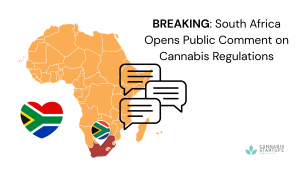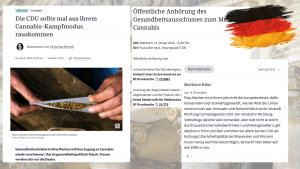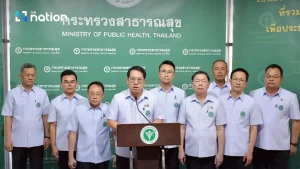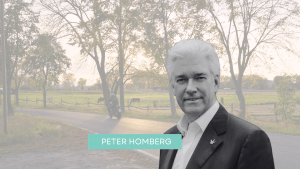Colombia’s cannabis industry just got a political and regulatory tailwind. President Gustavo Petro is calling on the United States to abandon prohibition and embrace a regulated global trade in cannabis, while his own government is opening domestic flower sales and expanding export channels. For Germany and the wider EU, that could mean a new, reliable source of medical-grade flower and extracts.
From prohibition to partnership
Petro’s recent remarks on X went beyond regional politics. He argued that “responsible and state-regulated consumption” is more effective than the decades-old prohibition model. Instead of fighting farmers, Colombia wants to fight poverty and channel cultivation into a transparent, regulated industry.
His government already acted. Decree 1138 of 2025 officially allows the sale of medical cannabis flower in Colombian pharmacies, while prioritizing small and medium growers for two years. That move closes a long-criticized loophole — until now, Colombia could export flower but not sell it at home.
Las guerras que Colombia vive desde hace 5 décadas, primero urbana hasta 1993, después rural, se deben al consumo de cocaína en EEUU; aunque han habido aportes de gobiernos estadounidenses a la paz de Colombia, han sigo exigüos y nulos en los últimos años.
Se ha construido una… https://t.co/R2SGZEnDfU
— Gustavo Petro (@petrogustavo) October 20, 2025
A global export network is forming
Colombia has quietly become one of the world’s most connected cannabis exporters. Shipments of flowers, extracts, and seeds already reach:
-
Germany, the leading European medical market.
-
Switzerland, Portugal, Czech Republic, and other EU states with import frameworks.
-
Canada, Israel, and Australia, which buy Colombian medical-grade flower.
-
Thailand, Uruguay, and Lesotho, which use Colombian genetics or supply contracts.
-
United Kingdom, Costa Rica, Peru, and Brazil, which import CBD or non-psychoactive extracts.
This footprint gives Colombia a realistic path to become the southern production hub feeding regulated markets in the north.
Germany: the next strategic partner
Germany’s import demand is soaring — nearly 200 tons in 2025, a 57 percent increase after the BfArM raised its quota. The new German framework, combining domestic cultivation clubs with a robust medical market, still depends heavily on imports. With GMP-compliant facilities in regions like Cundinamarca, Antioquia, and Boyacá, Colombian producers can help close that gap.
For Colombian exporters, Germany offers:
-
The largest legal medical cannabis market in Europe.
-
Predictable pharmacy-based distribution, already aligned with medical standards.
-
High-value demand for GMP-certified flower, which Colombia is well equipped to provide.
For Germany, Colombia provides:
-
Stable year-round cultivation, reducing seasonal shortages.
-
Competitive production costs compared to Canada or Europe.
-
A social impact story — supporting rural substitution programs and small farmers who move from illegal crops to legal medicine.
A shift in global cannabis geopolitics
Petro’s challenge to U.S. policy adds a geopolitical layer. He suggests replacing the drug war with trade. By legalizing cannabis exports — “like any good,” as he said — Colombia could convert decades of conflict into an agricultural success story.
If the U.S. remains cautious, Europe may become Colombia’s top partner. German importers, distributors, and pharmaceutical groups are already scouting for new suppliers. Swiss and Portuguese labs are testing Colombian batches.
The country’s advantage is its production ecosystem: low-cost cultivation, skilled agronomists, improving GMP infrastructure, and now, a domestic framework that legitimizes the same flower it exports.
What’s next
Over the next five months, Colombia’s Ministries of Justice, Agriculture, and Health must design simplified licensing for small growers. Once that’s in place, dozens of cooperatives and associations can join export programs — and potentially, sign supply deals with European importers.
The political message is clear. Colombia doesn’t want to be seen as a source of illegal narcotics anymore. It wants to be the world’s greenhouse for legal medicine.
Why it matters for Germany
German importers and pharmacists have long struggled with inconsistent supply, price fluctuations, and limited origin diversity. Colombia’s reformed cannabis policy adds a new layer of security — and ethics — to the supply chain.
The future of cannabis may depend less on where it’s consumed and more on where it’s grown responsibly. Colombia is ready to take that role. Germany should be ready to buy.
Analysis of Decree 1138 of 2025: A New Era for Medical Cannabis in Colombia
Published on October 27, 2025, the decree modifies key elements of Decree 811 of 2021 and Resolution 227 of 2022. Here’s what changes in practice:
1️⃣ The Flower as a Finished Product
Before: only processed derivatives (oils, extracts, capsules) could be sold.
Now: the cannabis flower itself may be dispensed directly for medical use, without further transformation.
This reclassification finally aligns Colombia’s internal framework with its export policy — since 2021, the country had been exporting medical cannabis flower abroad but not allowing domestic sale.
2️⃣ New License Modality: “National Use and Export”
Growers can now cultivate for export and domestic markets simultaneously.
Existing license holders automatically qualify to supply the national market without new paperwork.
This simplifies logistics and opens new business models that combine local distribution with foreign contracts.
3️⃣ Protection for Small and Medium Producers
For the next two years, only micro, small, and medium-sized cultivators may produce cannabis flower for the domestic medical market.
Goals:
✅ Strengthen the national industry.
✅ Prevent monopolization.
✅ Create real opportunities for local growers.
This transitional measure gives smaller farms a competitive advantage and supports the social goal of integrating rural producers into the legal economy.
4️⃣ Expanded Magistral Preparations
Pharmacies can now prepare magistral formulations not only for human use but also for veterinary purposes.
Requirements include certification from the ICA (Colombian Agricultural Institute) and direct supervision by a licensed pharmaceutical chemist.
5️⃣ More Flexible Research Framework
Non-commercial research licenses are extended to 24 months, renewable according to the project’s scope.
This encourages universities and research centers to deepen studies on cannabinoid therapy, cultivation techniques, and veterinary applications.
6️⃣ Simplified Licensing Procedure
The Ministry of Justice has five months to publish a simplified licensing route to help small and medium growers enter the formal market.
7️⃣ Phytosanitary Certification by ICA
The ICA will issue certifications authorizing the sale and dispensing of cannabis flower for medical purposes, without the need for an additional sanitary commercialization license.








